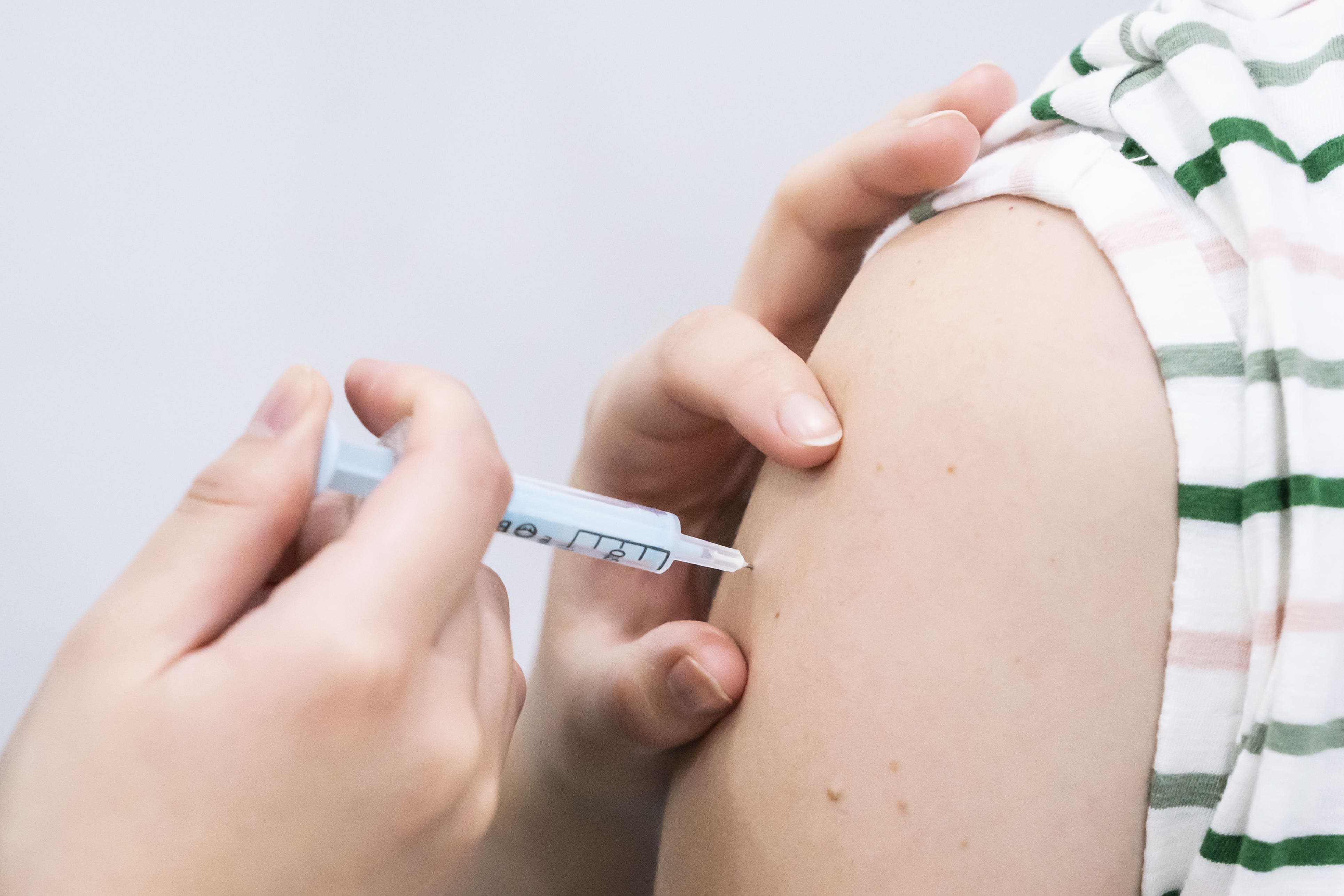Concern over ‘decline’ in vaccine confidence
Unicef has estimated that 67 million children have missed out on routine jabs since 2019.

Your support helps us to tell the story
From reproductive rights to climate change to Big Tech, The Independent is on the ground when the story is developing. Whether it's investigating the financials of Elon Musk's pro-Trump PAC or producing our latest documentary, 'The A Word', which shines a light on the American women fighting for reproductive rights, we know how important it is to parse out the facts from the messaging.
At such a critical moment in US history, we need reporters on the ground. Your donation allows us to keep sending journalists to speak to both sides of the story.
The Independent is trusted by Americans across the entire political spectrum. And unlike many other quality news outlets, we choose not to lock Americans out of our reporting and analysis with paywalls. We believe quality journalism should be available to everyone, paid for by those who can afford it.
Your support makes all the difference.Leading children’s health experts have sounded the alarm over dwindling uptake in routine vaccines for youngsters after new calculations show that tens of millions have missed out on life-saving jabs over the last few years.
Unicef has calculated that some some 67 million children around the world did not receive routine jabs between 2019 and 2021, which can protect against potentially deadly illnesses.
The international children’s body said overall support for vaccines remains “relatively strong” but several factors suggest the “threat of vaccine hesitancy may be growing”.
We cannot allow confidence in routine immunisations to become another victim of the pandemic otherwise the next wave of deaths could be of more children with measles, diphtheria or other preventable diseases
These factors include uncertainty about the response to the pandemic, growing access to misleading information, declining trust in expertise, and political polarisation, according to a new Unicef report.
Catherine Russell, Unicef’s executive director, said: “At the height of the pandemic, scientists rapidly developed vaccines that saved countless lives. But despite this historic achievement, fear and disinformation about all types of vaccines circulated as widely as the virus itself.
“We cannot allow confidence in routine immunisations to become another victim of the pandemic otherwise the next wave of deaths could be of more children with measles, diphtheria or other preventable diseases.”
Unicef said there is an urgent need to catch up on children who missed their jabs to “prevent deadly disease outbreaks”.
The latest annual figures for England show that vaccine coverage in 2021/22 decreased compared with 2020/21.
As a result, health officials issued a stark warning about the serious health risks from children missing out on their routine jabs.
Young children in the UK are offered a number of vaccines as part of their routine childhood jabs.
These protect against a number of serious illnesses including measles, mumps, rubella, diphtheria, polio, and some forms of meningitis.
The UK Health Security Agency said last year that vaccination rates have fallen over several years and also faced “additional disruption” during the Covid-19 pandemic.
Meanwhile Unicef UK has urged the Government to work with the countries which have fallen furthest behind with routine childhood jabs.
Liam Sollis, deputy director of advocacy for Unicef UK, said: “It’s devastating that 67 million children have missed out on vaccinations in three years.
“Health systems and services that keep children alive are cracking under the pressure of multiple global crises, while confidence in these systems is faltering too.
“Immunisation rates at such low levels will mean decades of progress for children being undone.
“Unicef UK is calling for the UK Government to work with the worst affected countries to develop resilient health systems and fund immunisation services. Prioritising catch-up schemes and vaccinating missed children is the best way to demonstrate the UK’s commitment to ending preventable deaths.”